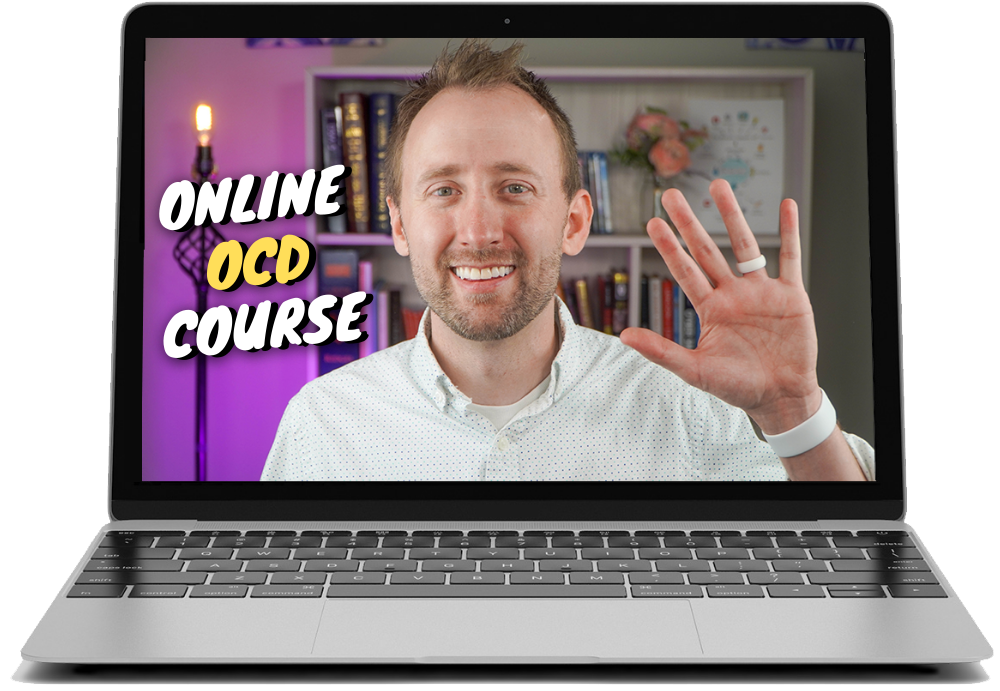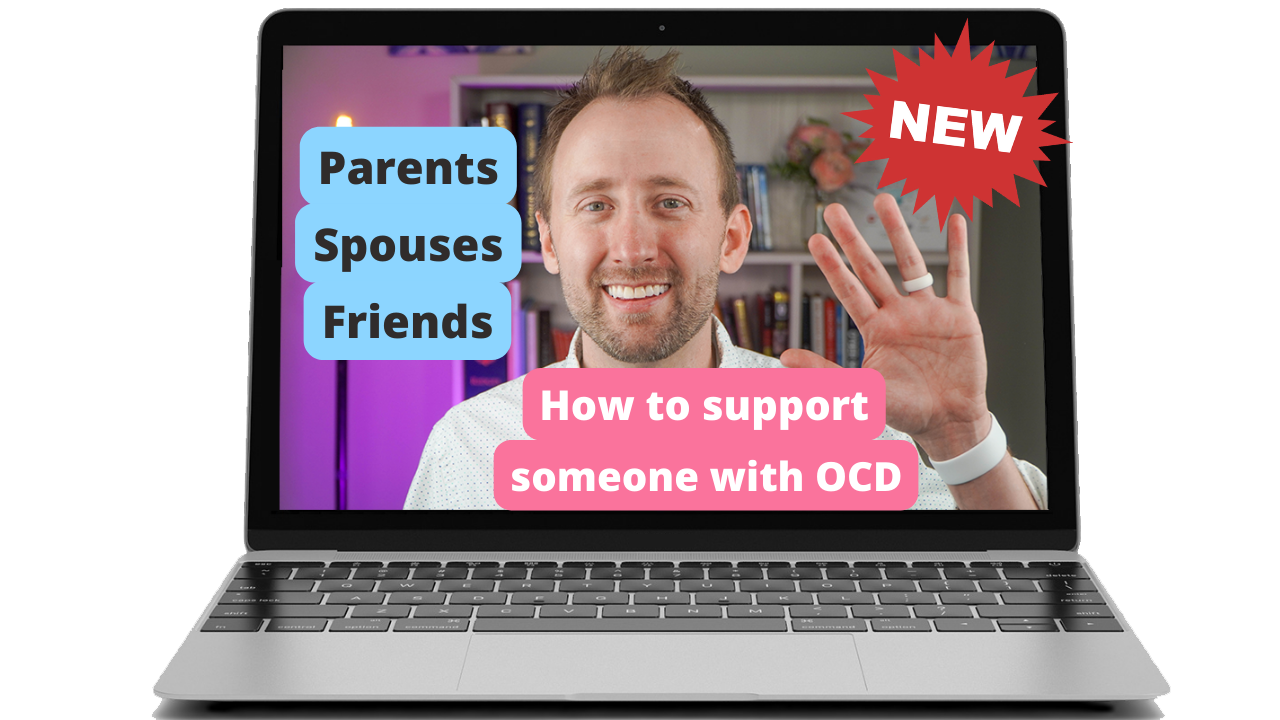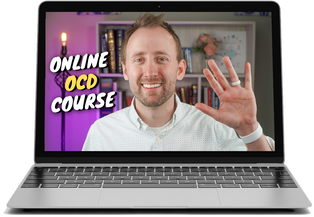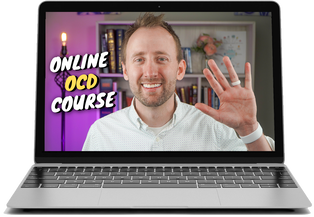Are my thoughts really true? OCDDo you own your thoughts, or do your thoughts own you? Every thought you have has validity of who you are and what you wanted to think of...right? Errrrr Wrong! There is a point where you have to look at the behaviors you're doing because of the thoughts and see who has ownership. Here is what I mean! The thoughts that cross you remind predict your actions. We either are going to push a thought away or do an action or a behavior because of the thought. Intrusive thoughts are thoughts that we don't really want but we have them anyway. They come and go as they please. The thoughts we give attention to are the ones that want to stick around. But we don't always react to our thoughts. If we did, wouldn't we really be our thoughts? For example...I'm sitting at a restaurant and am looking at someone's food. I'm hungry, my food hasn't gotten here yet. I have the thought, I should go over there and take a piece of bacon. I wonder what would happen. I have feelings, I have thoughts....you know what I don't have....the action. This tells us that we ACTUALLY have a choice. I can see that thought as random noise. meaningless. Because a thought is a thought. Here is a literal definition of a thought. It is merely an idea or opinion created by your mind. It is sudden and spontaneous and has no particular origin. Wow. think of that. This thought has no home. It's a random collection of thoughts that can cause real emotions which make us doubt and question something. So who is owning your thoughts? Well in one way, you do. In another way. No-one does. It has no where to go until we do an action to put it in it's place or just let it fly on by. When it comes to these intrusive thoughts, they can be about anything and cause extreme doubt, which make you believe they are valid. These random thoughts can be toward relationships, getting sick, possible harm, memories, and even responsibilities. When these thoughts don't match your value system we need to treat them as fluff. Nothing. Garbage. A random signal. Meaningless. Once we attach to it and attempt to figure it out, it's going to happen more and more and more. That is when these thoughts own you. You're doing behaviors to remove the thought or perceived threat. Let me tell you why it's important to recognize that you aren't your thoughts. If I take every random thought and run with it. I'm going to be convincing myself that I'm a monster pretty darn quick. If I pass by a girl and my brain says, "wow, she's cute" my brain tries to make sense of this. It's going to say, "well, you must not love your spouse" or you "just cheated" OR I could say, "hey, thanks for the thought today brain." Ultimately, we need to stop taking our brain so seriously. It's screaming out thoughts just to get your attention and says they all mean something, but you're not going to fall for it anymore. Let's actually own these thoughts by giving these types of responses: "sup thought" "coolio, thanks for that." "yep, I guess that could happen" "maybe, maybe not." "you're welcome to stay thought" You're also practicing now pushing them away or making since of them. You're not giving them a good home to burrow into. Once you say, this thought has meaning. It just snuggles right into bed with you. Taking the opposite and not giving it a great answer and just letting it pass on by...it moves over to the neighbors.....no neighbor. It may stick it's head over the fence to try a few more times. But that response of "I do not care" is important so it knows, "man, you can keep trying, and I'm willing to listen to you, but I'm giving you nothing." But Nate! How will I know when it's a thought I actually need to pay attention to? Well, here's my indication. Anxiety mixed with an urge to know. It's a trap! Anxiety always tell the brain the thought is dangerous, BUT here's the kicker. If you don't actually see the danger right in front of you, and I mean it. RIGHT IN FRONT OF YOU. It's not super obvious. Then, we're treating a thought as a thought and allowing it to pass. If you treat a thought as a thought, but try to push it away, you're saying it has value. We don't want to do this. Give yourself more grace for having a thought. No really. Enjoy your life. Enjoy your brain and all the processes it does. the positive thoughts and even the negative ones. Our brain isn't trying to hurt us. Instead, it's actually attempting to help. It's just not doing a great job at it at times. Our job is to retrain it by the responses we give. That response is the most important thing in all of this. Think about this with the next thought you have that causes some distress. My action right now is going to determine if this is important or not. Choose wisely. The next time you have intense intrusive thoughts and you're trying to figure out what you're going to do with them....remember that you don't have to do anything. You have a choice if your thoughts are going to own you or if you're going to own your thoughts. Did you know there are at least 3 types of intrusive thoughts? I made a video about these and how to actually get them to slow down. You're going to need to enhance these skills so you can become even more of a boss! How to own your own thoughts
0 Comments
Intrusive Thoughts wont' stopDon't click on the ad!
Have you ever just been scrolling the internet or social media and you see those ads pop up. they can be flashy, they can have some great one liner hooks I just capture your attention. But whatever you do, do not click on the ad. these ads are like your random thoughts. Those random intrusive thoughts that you don't really want but they just keep coming back anyway. What's worse is that they start joining your everyday life and activities. These ads can be intrusive. If you allow those ads to be there. Actually will slow down and sometimes be non-existent. You just told your computer or your thoughts that these ads have no value in your life and you're simply not interested. When one topic disappears, another may take its place. This new flashy ad seems important. It's new, you're not used to it and it seems highly important for you to pay attention to it. Do not click on the ad! When you're scrolling through social media and moving from page to page, you notice this ad following you. The ads say, you don't really love your partner to you? What if you pushed somebody harmful? What if you're going to get sick now? have you ever thought about this past experience how awful it was? today's the day you need to figure out you were identity? how do you even know there is a God? Your monster and I'll show you why. How tempting would it be to just click on this and once and take a peek. They don't know me! seriously, I'm not that kind of person. I'm starting my faith. I would never harm anyone. I love my partner. Let me just click on this ad so I can see what the fuss is all about. It is so intriguing that this thought goes completely against who I am and I want to figure out why. this is completely natural. I would want to know why my thoughts seem to be against me. I mean I'm just scrolling through social media, I'm just doing my homework, just watching a TV show. These ads are relentless and follow the person anywhere. Do not click on the ad! You have clicked on the ad. here is what is going to happen. This ad that makes you question your partner is now going to show up everywhere. You just taught your brain that this thought or ad has value. It gave it permission to say, "here I am" "here I am" "remember me" "I'm still here" -- thanks for giving me some attention. I'm here to tell you that it has meaning. In the digital world, when someone clicks on an ad, it teaches it that you care and thus they spend more to put that ad more in front of your face. They often call it retargeting. This intrusive thought is retargeting you. The cool thing about these retargets is that if you stop clicking on the ad, they eventually go away. Depending on the budget, it may last a few days. It may last a few weeks. But the thing to always count on is that they will slow down. Who wants to spend "money" or "energy" on someone who simply isn't showing any interest? So if you're not getting what I'm saying. Do not click on the ad and here are some tips to give you better chance. Notice the ads, allow them to be there. Don't use an adblocker. We don't push the thoughts away. We don't try to control them. We let them be. When you're scrolling, you may notice the thought or ad, but your job is to continue scrolling. If you must give the thought a response they can look like this. "hey thought" "welcome" "great to see you" "sure" "maybe" "maybe not" "thanks for the thought today." "You're welcome to stay as long as you want." When we give these responses and you may have to do them a lot. It shows the brain that you've recognized the thought, but aren't giving them much value. It's the "I don't care" attitude. This attitude is the antidote to intrusive thoughts. Allow them to be there, respond differently than you normally would and move forward. Continue living life and do exactly what you want to do. These thoughts may infiltrate various aspects of your day and life but don't stop living. You not stop moving forward. Just like these ads, it got nothing to retarget when you simply give them no value. And as these flashy ads keep switching we treat each one the same way. Not one thought is more important then another. Thoughts are thoughts. Let them be thoughts. We can't ignore the anxiety and distress that come from these thoughts. Just know that these feels tend to be false. it's that extra push for you to click on those ads. Instead, we treat these feelings the same. To me, it's a false signal. Anxiety without immediate danger is false anxiety. It's based on a guess and on a meaning that you've put upon this thought. We can treat this anxiety the same. "hey anxiety" "welcome" "you're welcome to stay" "I love love love these feelings" When our response to anxiety changes. You're putting your arm around it. It learns that as it's freaking out, you're cool as a cucumber. Teaching it to no longer freak out about an intrusive thought. It often doesn't know until you teach it. These ads have nothing on you. You're too powerful. Tell yourself this! Don't click on the ad the next time your intrusive thought demands attention. Act as if you don't care. Welcome it. Acknowledge and move forward. Speaking of intrusive thoughts. You need to enhance your skills even more. I've come up with even more responses to these pesky thoughts. Go watch that video here. It's worth your time! OCD CompulsionsThis is Nathan Peterson, licensed clinician and OCD specialist. This one compulsion is so very common and most don't even know they're doing it. I often talk about sneaky compulsions. These compulsions come in so many different forms. If you don't know what a compulsion is, it is the thought, behavior, or action that someone might take in order to attempt to gain certainty with their fear and/or reduce anxiety. Here's the compulsion. Telling your OCD story. No don't get me wrong, there are times in your life where you need to tell your experiences. Go through the thoughts and feelings. But many tell their story daily. Whether it be on forums, groups, or to their loved ones. It seems so innocent to do so but let me share with you the dangers of taking this path. What ends up happening is that the individual that suffers with OCD shares the story time and time and time again. And when I mean story I mean they are sharing an experience they had in the day. They are sharing an intrusive thought that came their way. They are sharing a feeling that they have. Essentially, they are confessing their thoughts. They are not necessarily looking for reassurance. Instead they are just simply sharing what they're going through. Here's the tricky part, for most, not all... They are receiving reassurance. Maybe they don't even though they are doing so. They are receiving reassurance because they just shared their experience to someone and that person did not freak out. That person may have given them reassurance. They may have looked at their facial expression to see if they think I'm crazy or do they not. Do you think I'm OK or do they not. The sense of being a roundabout way of receiving reassurance. I mean heck, we're taught our whole life to share experiences. But when it comes to intrusive thoughts and obsessions, we were verification and certainty. We want support. See what happens if you don't. If you feel that overwhelming need to share, maybe you feel like you won't get better until you do, it may be a compulsion. Maybe delay it. You're not waiting for your spouse to get home to tell them what you've gone through. You wait two or three hours after they've already been home. See if you can wait. If your loved one or support person has asked you to share what you've gone through. You may still have to evaluate and ask yourself, why am I sharing this intrusive thought today. Is it to gain support what is the gain Comfort and reassurance. There are obviously instances where sharing your experiences and story are important. To someone like a therapist. Some may set up checkpoints. Meaning they have set a certain time every other day or every week whatever is reasonable to share and experience at a certain time. But again it's looking at if this is going to help or hurt your OCD. I would love it if people changed talking about their OCD experience that day to here is how I used treatment with my OCD experience. I had this intrusive thought today while I was driving. Guess what I did, I kept driving, I didn't look in my rear view mirror, I didn't go back and check. I kept driving. What does does is promote treatment more than give the story more power and value. Think about this the next time you want to share about your intrusive thoughts or OCD story. If you've been watching my other videos, we've learned that OCD is OCD and we give the thoughts no value or power. So, to help with this process, not going through it and "figuring it out" shows that it's all fluff. It doesn't mean that you don't matter, it may just mean that those thoughts are error messages that don't need to pay attention to. To help you build a stronger muscle to stop these compulsions, go watch this video, where I talk about simple tricks to stop compulsions all together. Thanks so much for watching and I'll see you next time. Treatment for OCD compulsionsWhat is moral scrupulosityWe're all built with a moral compass. It tells us what's important. Who we are and what decisions are right for us to be a good person. What happens when it that compass breaks, jumping around the dial trying to find a good spot to land and never satisfied with your final decision. In this video, we will go over the characteristics of moral scrupulosity to see if you can relate and 3 ways we are going to fight it. If you're obsessing about your ethics, it might not be such a good thing after all. Hear me out, your ethics and morals matter. It's when you have moral dilemmas throughout the day. Questioning and obsessing about your decisions, your ethics, and if you are doing things morally right. I may have heard the term scrupulosity used to describe religious obsessions. But there are individuals oh, actually a lot of individuals the struggle with scrupulosity have nothing to do with religion. Simply put, they just want to make sure they are a good person. Moral scrupulosity is an obsessive concern about this very thing. Your life might depend on it. You value yourself as it's a very black and white person. This was a good decision, this was a bad decision. This can be determined before the decision is even made. Putting value on something that hasn't even happened yet. Once the person makes this final decision, the brain may say.....you know what bro, ARE YOU SURE? Here is a checklist of how moral scrupulosity shows itself. -An excessive concern with being 100% honest at all times. -Overthinking about the possibility of getting in trouble or breaking the rules. -Concern and ruminating about past experiences. Those things you can't change and wondering if they were immoral or not. -Researching if others would make "this" decision. If it makes them good or bad. -Concern that others would reject you if they really knew about a decision you made. -Obsessing about an actual moral mistake made and feeling the need to punish oneself. -Concerned that you've made a mistake because the brain poped in the idea. Having to replay the moments to find out for sure. -Worried about being disloyal to a partner or spouse or caused someone else to be immoral. A glance at someone may mean you committed adultery. -All decisions are over-evaluated for their ethics and morals. Often other themes of OCD like to join the party. It could be contamination, I touched this thing that someone else touched, and if I get them sick, it was wrong of me. Checking - I didn't check all the doors multiple times and if something happens, it may be morally wrong to risk this. Accidentally causing harm means I'm a bad person. I tripped my child, my carelessness determines who I am as a person. You get the picture. This all is mingled with anxiety and fear. It may not be worth the risk of being a "bad" person. The compulsions that happen show this: Lots of reassurance asking - "am I good person" - they may be mentally reviewing their day or doing certain behaviors to make the situation "right" again. Rumination is a big big big one. I'm just thinking and evaluating. Fixing in my brain but never being satisfied. Now that you know what moral scrupulosity looks like, let's dive into the three ways we're going to fight this. Okay, here's really #1. use exposure and response prevention. many individuals believe that they must go against their value system when using this type of treatment but this is not the case. In this treatment your whole goal is to be uncertain. this me mean got the problem solving in your brain is no longer something you're going to engage with. You are choosing to stick with what you know and leave the rest uncertain. For instance, send me think that if they have a fear of lying or being deceitful that their exposure must be to lie and be deceitful. If this is not part of your value system it is actually not something you need to do. Instead we focus on those things that you think happened. Those things that you feel you may have lied or have been deceitful. What we end up finding through this whole thing is that what the brain says and what actually happened are two different things. We are exposing to the uncertainty of not knowing if you are a good person or a bad person. We are not going out of our way to make sure that you didn't lie. We are letting life happen as it is. so when the brain says or you completely honest with your boss? my job is to not fall in the Trap of ruminating and trying to figure this out. My job is to respond differently to this. which brings us to #2 - Respond differently -- Anytime the rain comes up with an idea and it's mixed with anxiety and you have that urge to fix it we are choosing to respond differently. You are almost committing to not find this answer. So I might say. yeah man totally, probably did. what do you think happens when I do this? I almost imagine the brain exploding. It's like, what the heck are you saying. I just told you that you are in such danger right now and that's the response you give me? it actually takes all the value away from this thing. It doesn't take value away from you are values or morals. instead, it is teaching your brain to move forward. To not fall for any threats then you can't physically see in front of you. Responding differently means that you are not doing the compulsions anymore. You might spend some time writing down all the compulsions you do. Compulsions are those things you were doing to be sure that you're a good person, be sure that you didn't lie be sure you'll never hurt somebody be sure you're honest in all your dealings. People tend to be so scared but if they no longer put so much control in this area they will just go off the rails. This is so untrue. We are just simply not responding to OCD and anxiety anymore. Allowing the body and brain to just do it sting when it comes to your values and morals. #3 - Acceptance - It's important when choosing to do treatment that you have the mindset of acceptance. Acceptance means that you're allowing thoughts to be and choosing to not do anything with them. You accept that you're going to be moving forward in life regardless of the doubting noise in your head. You're not going to make sense and problem solve if you're a good person or not. That is one of the toughest points, choosing to not figure this out. What a lot of people say is, "but if I'm not a good person, I can't live with myself" -- But here's the thing, it's not your job. Your job is to be you, whatever YOU is. We're not determined by what we think we are or what we think we're not. Be you. The doubts that come in can often be answered with a "maybe, maybe not." or a "okay" Do you ever excessively question if you're making the right decisions or if you're a good person? Let me know in the comments. Treatment for moral scrupulosityMoral scrupulosity ocd |
AuthorNathan Peterson specializes in working with OCD and Anxiety related disorders and has done so for the past 7+ years. Archives
January 2023
Categories
All
|





 RSS Feed
RSS Feed